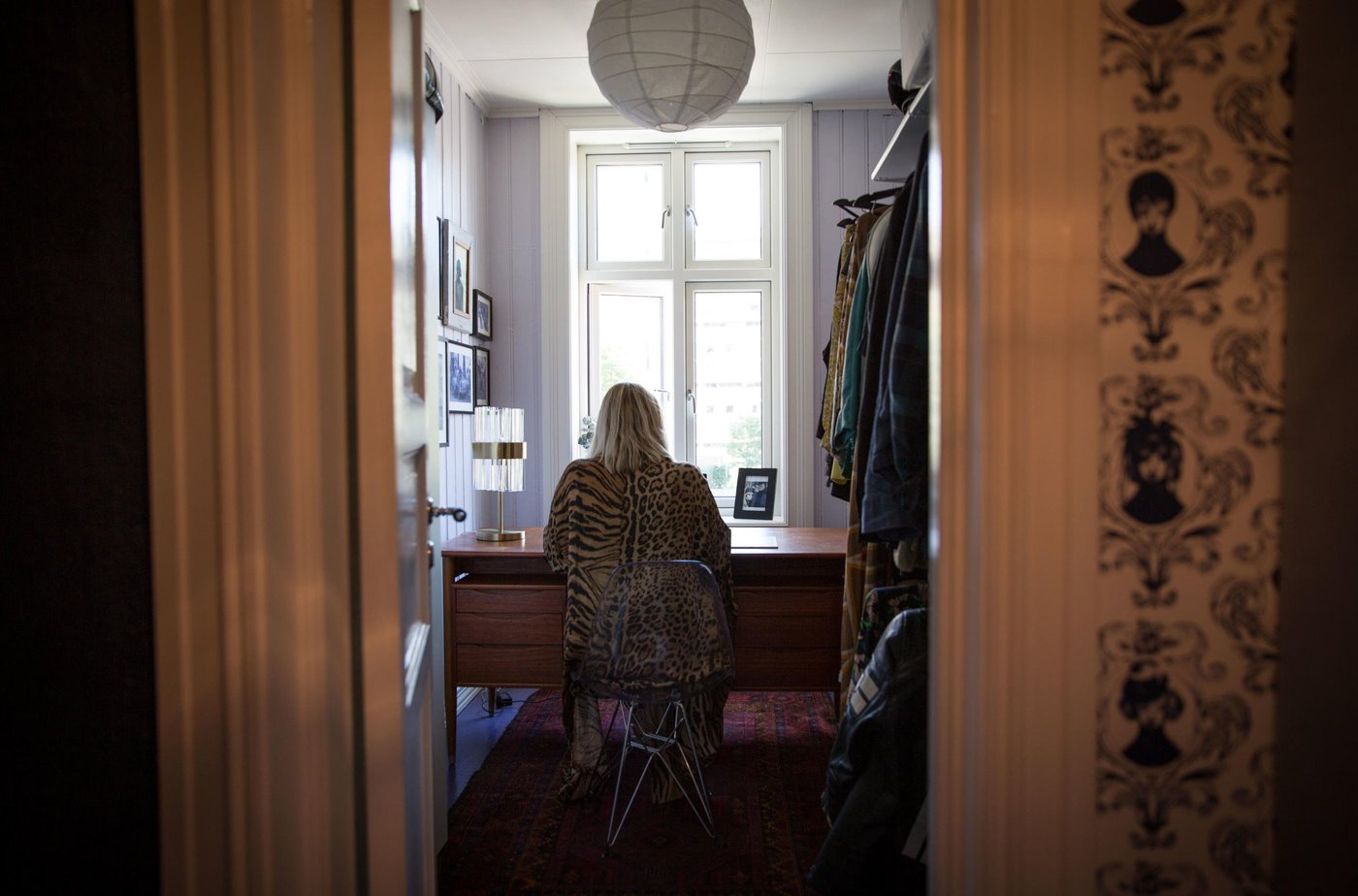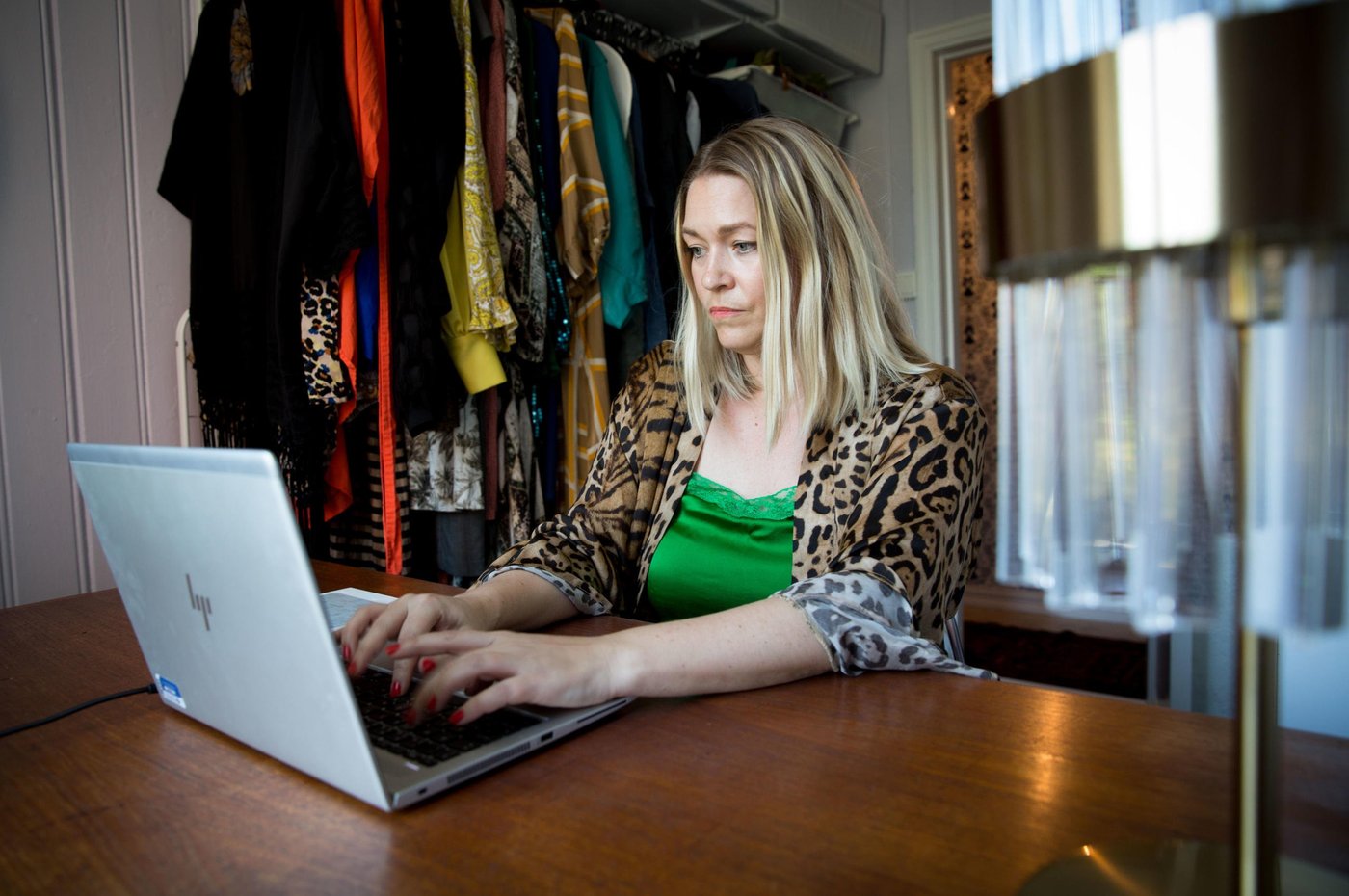A number of people have drawn historical comparisons to the years 1918–1920, when the so-called “Spanish flu” killed more people than the devastating World War that had just ended.
NRC realised the seriousness of the situation. At its head office in Oslo, the question was: “How will we be able to continue our work and deliver help to millions of people? How can we provide vital assistance such as shelter, camp management, food, clean water, legal aid and education for displaced children and adults?”
For Marit Glad, 40, and her team, it was no small task.
Choosing to stay
“I don’t think I have ever worked so much,” she says, through my computer screen. Behind her, I can see a rack of dresses; NRC’s Director of Programme Development and Support has her pandemic home office in her wardrobe.
From this tiny room, she has held Zoom meetings with colleagues around the world. But first and foremost, she has kept in touch with her team of 30–40 international technical experts.
“I am particularly proud of two of our achievements,” she explains.
“The first is that NRC, despite the pandemic, has been and still is on the ground where people need help. At the end of March, a number of humanitarian aid organisations withdrew their international staff from many countries. But we mostly managed to keep our management teams on the ground and our local staff did – and continue to do – a fantastic job.
“We succeeded because we have extensive experience in providing help to people who live in hard-to-reach areas.”
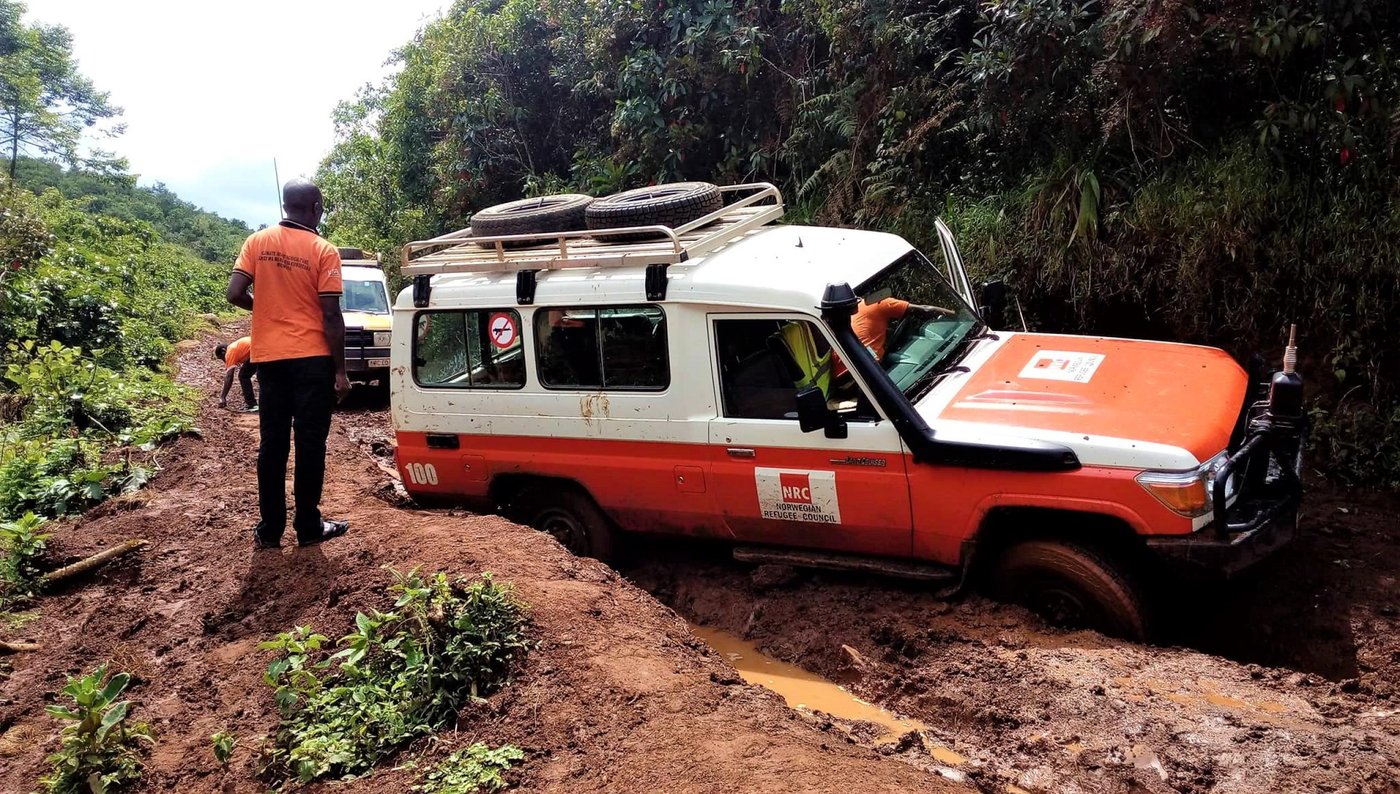
Marit says that NRC’s people are used to solving problems, getting to areas that are difficult to access, and communicating with people even if they can’t be physically present.
“In my team, which on a typical day is spread across seven countries, our workday has involved video conferencing – through Zoom and Skype – for several years. It wasn’t new to us.
“The second thing I am proud of is that we found our role as an organisation in all this. NRC doesn’t work directly with health issues, so we had to find out how we could best contribute,” she adds.
Do you want to help people forced to flee? Donate here.
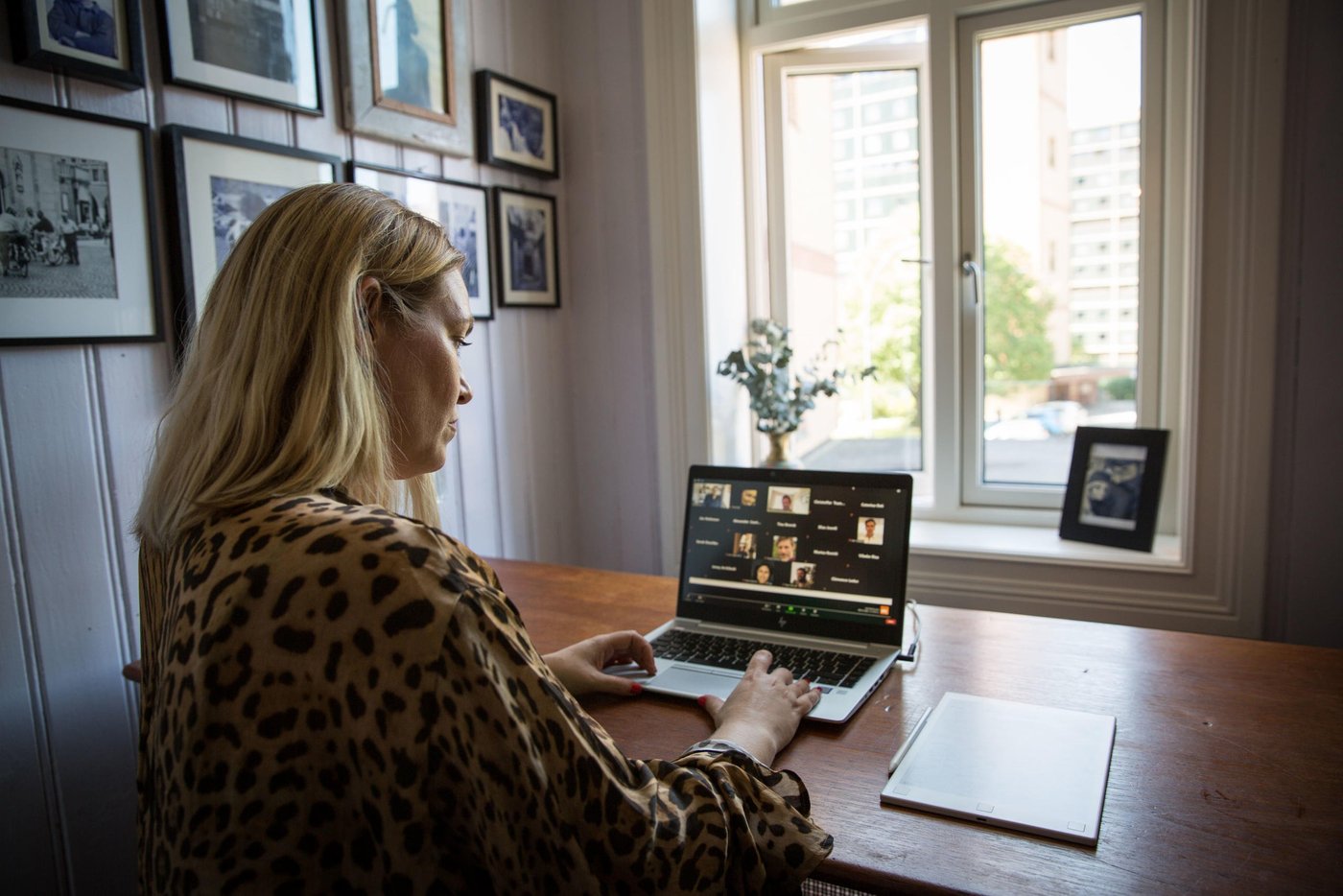
Timeline of a pandemic
When a number of people fell ill in the city of Wuhan in China in December 2019, the doctors first thought it was pneumonia. But in early January 2020, the Chinese authorities announced that they had detected a new coronavirus.
By the end of January, people in the United States, Italy, Iran and North Korea were infected. By 7 March, more than 100,000 had been infected worldwide, and on 11 March, the World Health Organization (WHO) declared the disease a pandemic.
Source: The Great Norwegian Encyclopedia
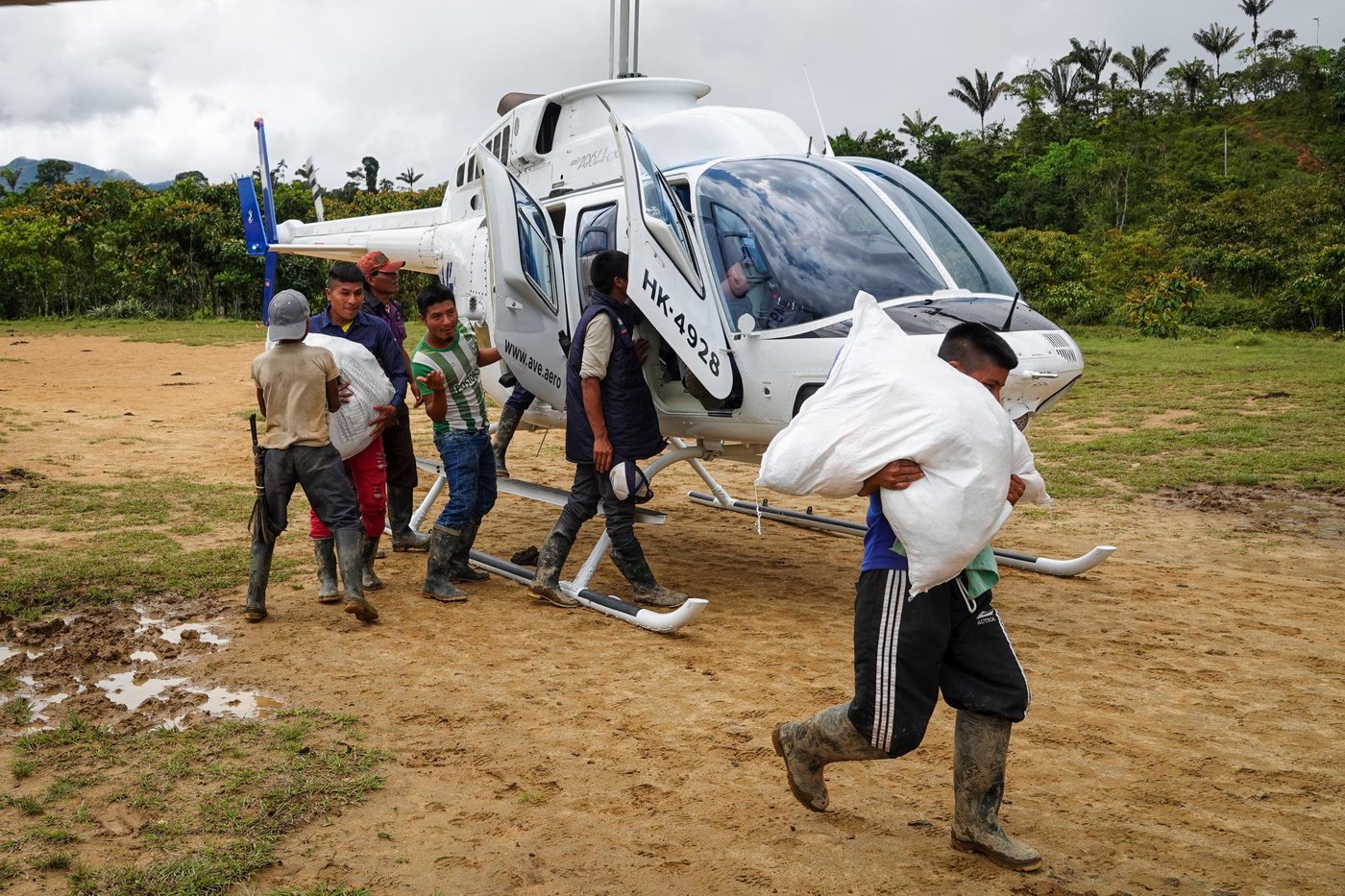
Working in conflict zones
NRC is a large organisation with a total of 15,000 aid workers in 33 countries, spread across Africa, the Americas, Asia, the Middle East and Europe. Although NRC’s head office is located in Oslo, it doesn’t work with refugees in Norway.
NRC focuses primarily on areas of war, conflict and uncertainty. These are places where it is very difficult to operate.
“The reason we focus on these areas is because not many other organisations do,” says Marit.
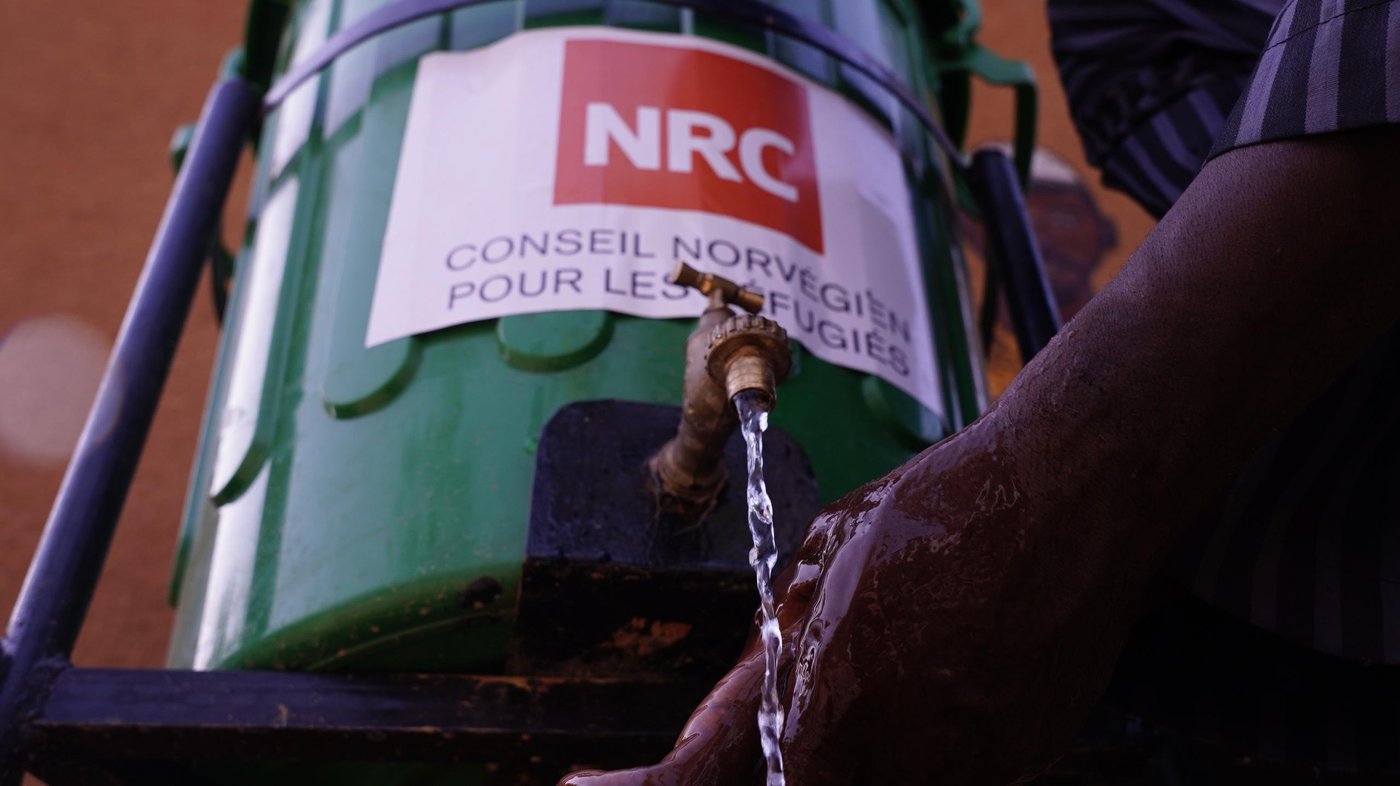
Support for the health sector
Marit says that, in their crisis meetings, the team agreed that NRC should continue to do what it was good at – rather than suddenly becoming a health operator.
“Because then we could end up doing more harm than good. There are other organisations that are much more effective than we are at running hospitals or providing medical help,” she explains.
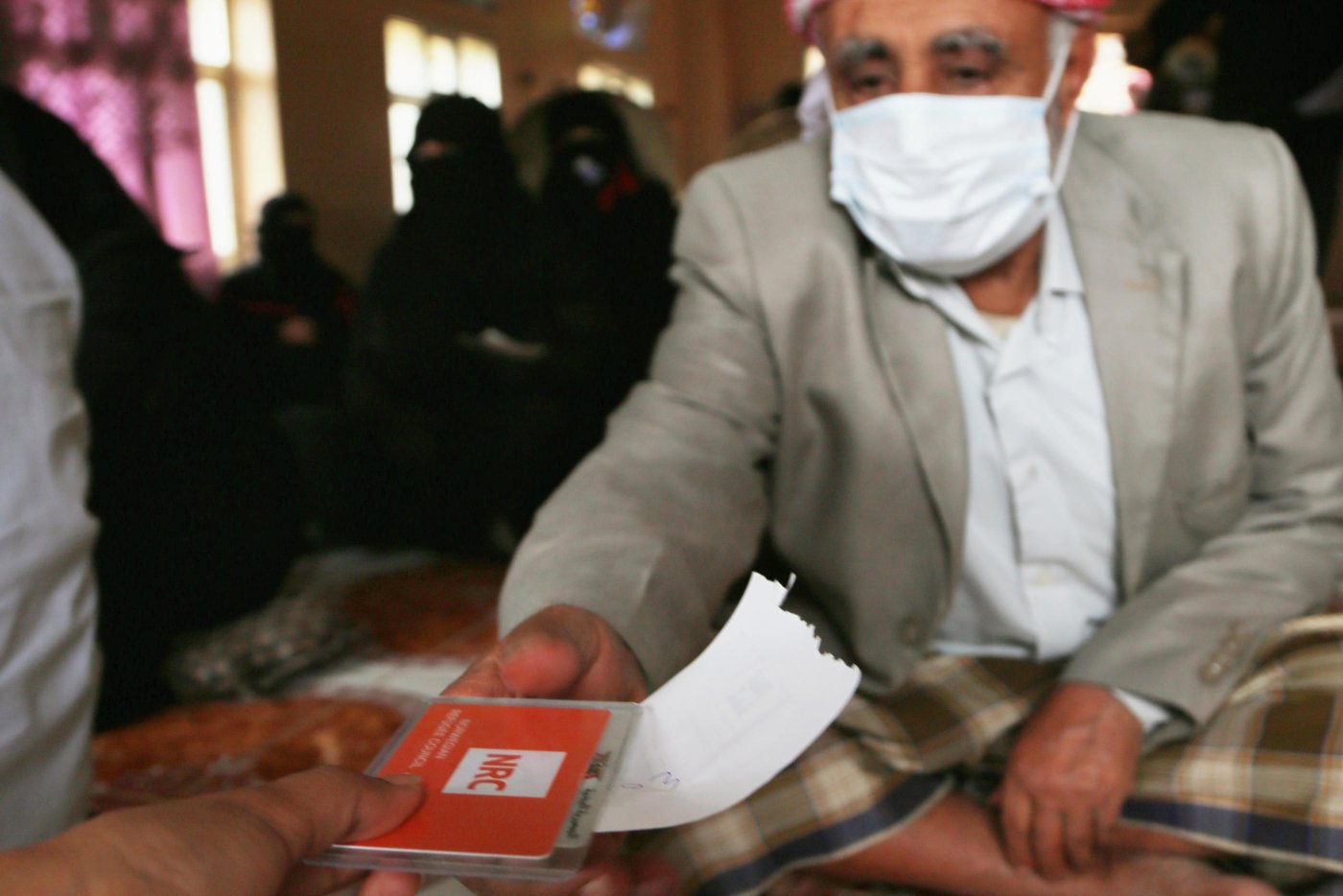
But maybe we could support the health sector?
“For example, we have always built schools and set up houses to give people a roof over their heads. We came to the conclusion that we could use our construction teams to build everything from quarantine centres to hospitals. In short, we could upgrade medical facilities. And we wanted to do this in collaboration with partners who work with health issues.”
How can we help prevent the spread of the virus?
Marit and her team asked themselves many questions about what could be done to prevent the virus from spreading.
“We know that many displaced people live in very close quarters, whether they are in refugee camps or in slum areas,” she says. “At the beginning of the pandemic, we were worried that the virus would spread explosively in such densely populated areas, so we began to think of possible solutions.
“We could have asked the relevant authorities for more land, so that the people living in the camps had more space. But we knew that this wouldn’t be possible everywhere, so we had to think of other solutions to allow people to go into isolation and quarantine.”
Imagine you live in a tent with 12 people. You may have a grandmother who is particularly vulnerable or an uncle who has Covid-19.
“What can you do when you live in such close quarters? We know that soap, water and handwashing are not enough. You also have to keep your distance. Maybe we could help people set up some physical barriers inside the tents. We discussed things like that quite a lot in the beginning,” she continues.
Economic crisis is hitting hard
The coronavirus pandemic is not just a health crisis. All over the world, companies have been forced to close down and people are losing their jobs. At the end of August, NRC conducted a study to understand how displaced people were being affected financially.
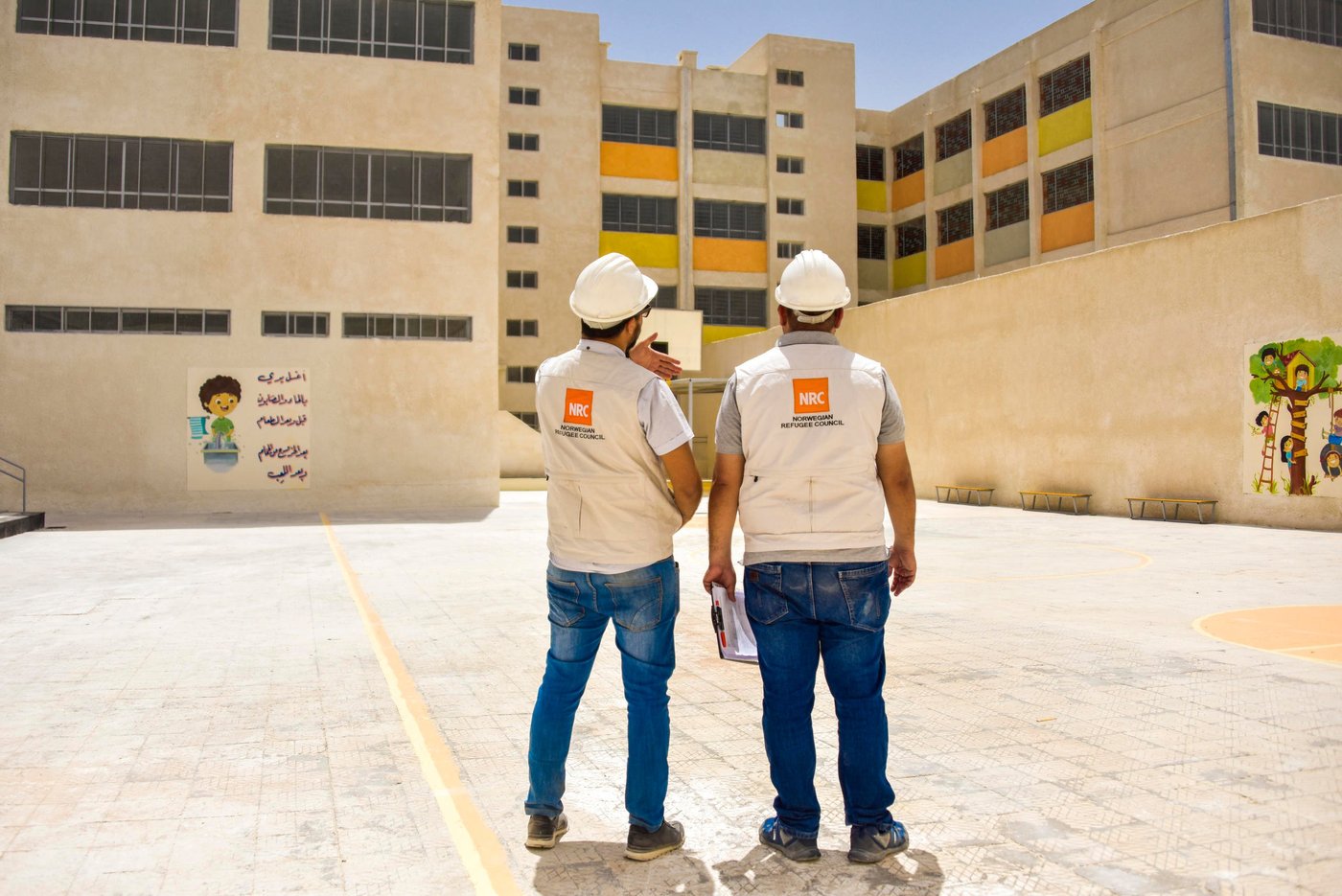
“What we found was alarming,” Marit says. “As many as 75 per cent of those we spoke to said that they had lost their jobs or had their income reduced since March. As a result, many of them are struggling to pay their rent, and have had to cut what they used to spend on medicines.”
Marit says that NRC has given many people financial support to help them manage for a few extra months. However, this is not a lasting solution. NRC can also help people get back on their feet, get back to work, start a business again or receive a new education.
“But we can’t do all this alone. The international community must help to get the economy up and running in those countries that have many refugees or internally displaced people.
“It is incredibly important to include displaced people in rescue packages and any measures designed to stem the negative ripple effects of the pandemic. If not, we risk a situation where displaced people are left behind.”
Do you want to help people forced to flee? Donate here.
School during a pandemic
Schooling and education are two of the most important aspects of NRC’s work. Marit says that, in common with Norway and other European countries, most of the countries where NRC operates closed their schools when the pandemic arrived.
Read more about NRC and education here.
“Some countries have cautiously begun to reopen their schools, but many remain closed. Our education teams have made a formidable effort to provide something for the children.
“Similar to what the schools have done here in Norway, we have also tried to use digital solutions. But as we also know from Norway, home school and digital teaching are not ideal. So, we hope that the schools will be able to reopen soon,” she says.
Marit continues:
“We are preparing for reopening and trying to get things ready by upgrading the facilities to ensure better access to soap and water, for example. The problem is that many schools were already overcrowded and were already holding classes in shifts, so it is difficult to find solutions to help them maintain social distancing. But I have great faith that our colleagues on the ground will come up with something.”
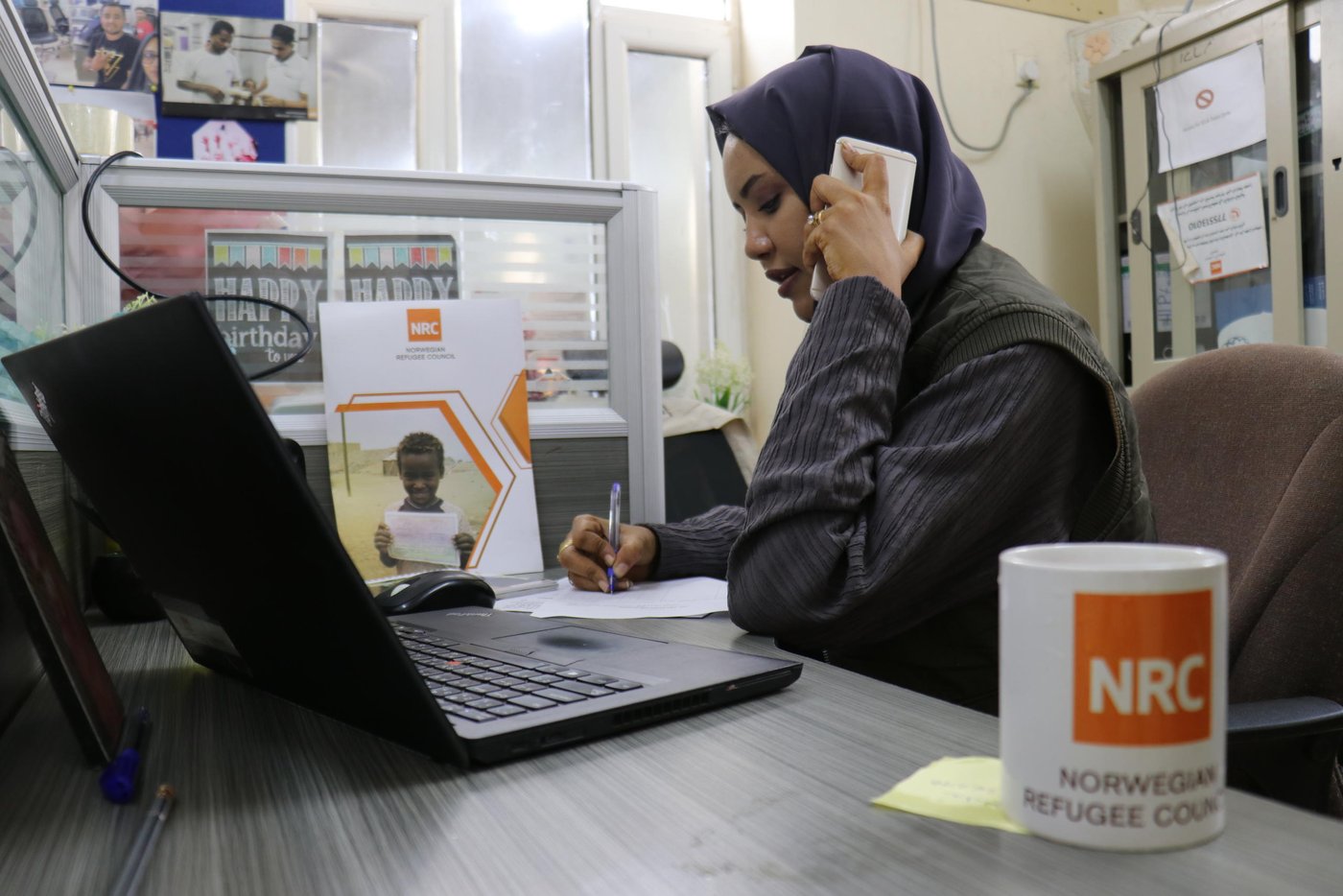
From previous health crises where schools have been closed, such as the Ebola crisis, we know that many children unfortunately do not return to class on the day the schools reopen. Marit says that this is something NRC is very worried about. She expects that we will need to develop specific measures to get children back to class when the schools reopen.
“The pandemic risks setting back the education sector in the countries where we work by many years,” she says. “In recent years, we have seen a positive trend, where more children have started receiving education. The progress we have worked so hard to achieve may now be lost. It’s very sad to think about.”
A royal meeting
Did Marit and her experts ever panic? Or does she feel like they have managed to stay on top of the situation the whole time?
“No, we haven’t felt panicked. But we always thought: ‘What if we can’t manage to continue doing what we do? What would happen to all those who depend on our help?’ Unfortunately, the pandemic has not ended war and conflict, so people will still need help. There has been a lot to deal with.”
One day she received an invitation to a digital meeting with NRC’s patron, His Royal Highness Crown Prince Haakon of Norway. He wanted to gain insight into how the pandemic was affecting various Norwegian companies and organisations.
So, Marit Glad turned on a virtual screen background.
And met with him in her wardrobe.
